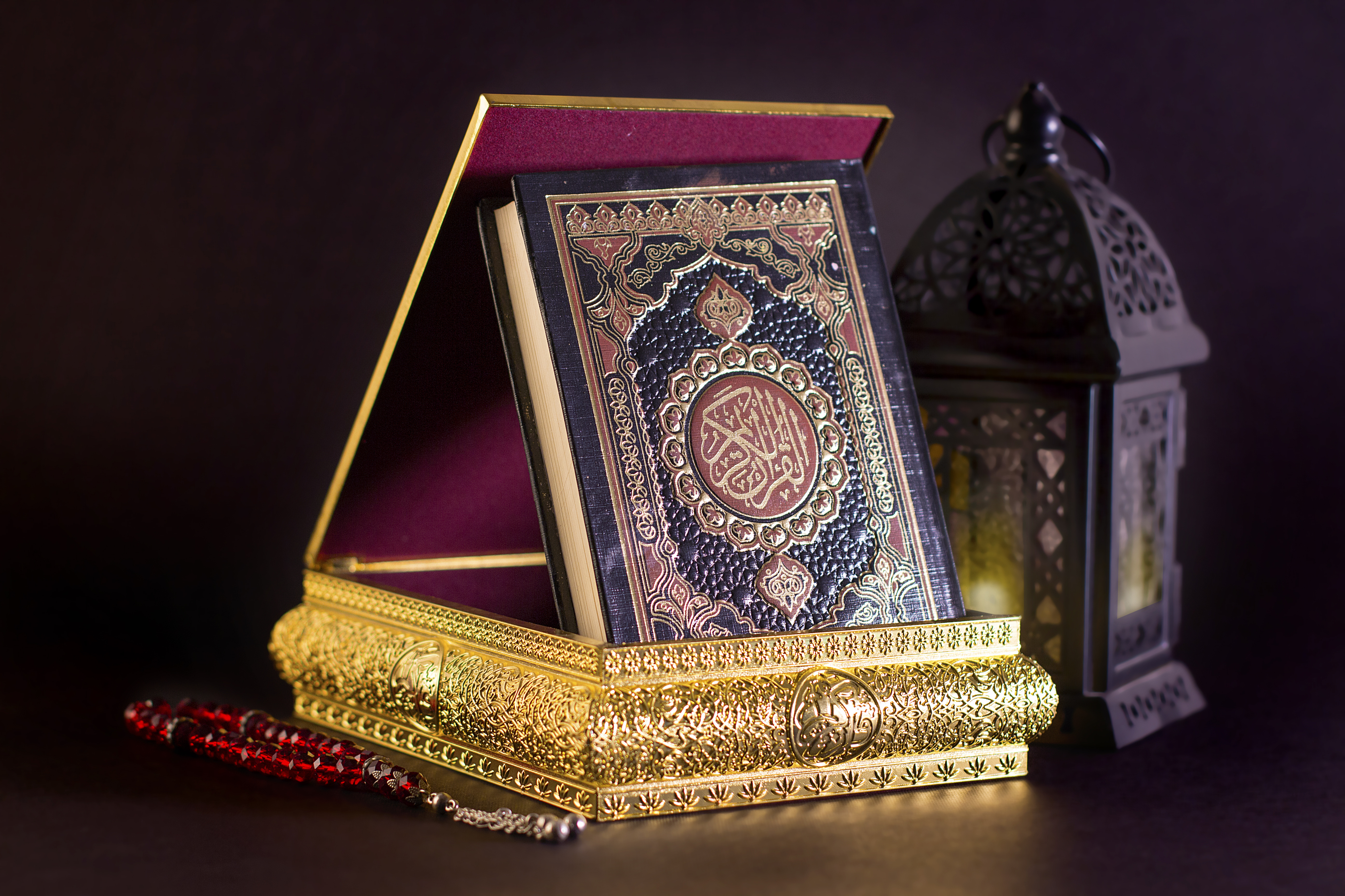The word “Ramadan” is derived from Arabic word “Ramad” which literally means “Burning”
“It was named Ramadan because it burns the sins of people with good deeds”
Narrated Abu Huraira: Allah’s Messenger Sal Allaahu Alayhi wa sallam said, “When the month of Ramadan starts, the gates of the heaven are opened and the gates of Hell are closed and the devils (Shaytans) are chained.” Sahih al-Bukhari 1899.
Al-Baqarah- 2:183 “O believers! Fasting is prescribed for you, as it was prescribed for those before you, so that hopefully you may become Godfearing”
Fasting is prescribed for you, as it was prescribed for those before you.
Fasting is also prescribed for them and obligatory and mandatory for all. There is no disagreement about this.
Historians state that the first person to fast Ramadan was the Prophet Nuḥ (Noah) when he left the Ark.
Fasting is obligatory for every nation and it is known that there were nations before Noah (Nuḥ), and Allah knows best.
Allah had prescribed fasting Ramadan for the people of Moses (Musa) and Jesus (Isa) but they altered it.
The Christians were obliged to fast a month, the priests added ten days due to a vow made by one of them and eventually, due to further oaths, the Christian fast became fifty days and that was too arduous(difficult) in the heat, so it was moved to the spring.
Fasting – Fasting is found in many religious traditions, including Christianity, Judaism, Hinduism, Buddhism, and others. The reasons for fasting vary among these religions, but common themes include spiritual purification, self-discipline, and a closer connection to the divine.
Christianity – Lent is a specific period of fasting, in Christianity. It spans 40 days and begins on Ash Wednesday, and ends in Easter Sunday. Fasting during Lent may involve abstaining from certain types of food, such as meat and dairy, or individuals may choose to fast from particular habits or luxuries.
Catholic Christianity: the rules for fasting during Lent involve abstaining from meat on Ash Wednesday and Fridays during Lent.
Judaism – Jews observe fasting on several occasions throughout the year, with Yom Kippur being the most significant and solemn day of fasting in the Jewish calendar.
It is a day of repentance, prayer, and fasting, and Jewish individuals refrain from eating, drinking, bathing, and other physical comforts for approximately 25 hours, starting at sunset the evening before Yom Kippur and ending after nightfall on the day itself.
Bases of Islam. The Prophet Sal Allaahu Alayhi wa sallam said, ‘Islam is based on five: (1) the testimony that there is no god but Allah and Muhammad is the Messenger of Allah, (2) establishing the prayer, (3)paying zakat, (4) fasting Ramadan and (5) ḥajj.
Siyam (Fasting) Ibn Umar related it. Linguistically ‘ṣiyam’ (fasting) means refraining from something and not moving from one state to another. Silence is called fasting because it is refraining from speaking, as we find when Allah says in Surah Maryam:(19-26) “If you see any human being, say: I have made a vow a fast (Silence) for Rahman (Allah), so I will not speak to any human being today”
In terms of the Shariah, fasting means to refrain from all those things which break the fast, having made the intention to fast, between dawn and sunset, and it is completed and perfected by avoiding all forbidden things and not falling into any prohibited actions, as the Prophet (S.A.W.) said, ‘’If someone does not abandon lying and acting by it, Allah has no need of him abandoning food and drink.’’
Fasting is specially for Allah. Allah singled it out for ascription (belongs) to Himself as is confirmed in the hadith in which the Prophet Sal Allaahu Alayhi wa sallam reports his Lord as saying, ‘Allah Almighty says, “Every action of the son of Adam is his, except for fasting. It is Mine and I reward it.” He singled out fasting as being His, even though all acts of worship are in fact His. Two reasons which make fasting different from other acts of worship.
The first is that fasting curtails the enjoyment and appetites of the lower self, which other acts of worship do not.
The second is that fasting is a secret between the slave and his Lord that only He knows.
All other acts of worship are outward and may contain some artifice and showing off, which is not the case with fasting. That is why it is specially for Him.
Al- Baqarah-2:184 “(Fasting is) for a specified number of days. But any of you who are ill or on a journey should fast (an equal) number of days later. For those who are able to fast [only with difficulty and do not fast], there is fidyah (Ransom) to feed the poor (for each missed day) And if someone does more good than this voluntarily, it is better for him. If you truly understand the rationale of fasting, you should fast, it is better for you.”
The virtue (goodness) of Ramadan and the Revelation of the Qur’an in it.
Al-Baqarah-2:185 “The month of Ramadan is the one in which the Qur’an was sent down as guidance for mankind, with Clear Signs showing the Right way and distinguish (the truth and falsehood). Any of you who are resident for the month should fast it. But any of you who are ill or on a journey should fast a number of other days. Allah desires ease for you; He does not desire difficulty for you. You should complete the number of days and proclaim Allah’s greatness for the guidance He has given you so that hopefully you will be thankful.”
The 1st sentence of 2:185, provides textual evidence that the Qur’an was revealed during the month of Ramadan.
Al-Dukhan/The Smoke 44;1-3 Ḥa Mim,1- by the Book which makes things clear. 2- We sent this (Quran) down in a blessed night (Laylatul- Qadr) for We wanted to forewarn mankind.”
Blessed night, meaning the Night of Power
Al-Qadr 97:1 “Surely, We sent it (Quran) down in the Night of Qadr (Power).
This also indicates that the Night of Power is only in Ramadan.
The Word Quran -The word ‘Qur’an’ designates the words of Allah Almighty and means ‘recited’. It is also said that it is a verbal noun uses the word ‘Qur’an’ to mean ‘recitation’. The word “Quran” appears two times in (17:78)
Al-Isra 17:78 “Establish Salah from the decline of the sun till the darkness of the night (Zuhr, Asr, Maghrib and Isha) and (the recital of) the Quran at Fajr (dawn) indeed (the recital of) the Quran at Fajr is witnessed by the angels.”
There is no disagreement that the Qur’an was sent down from the Preserved Tablet (Loh Mhfooz) on the Night of Power all at once. It was then lodged in the House of Might (Bayttul-ezat) in the lowest heaven. Then Gabriel
brought it down, piece by piece, with commands and prohibitions brought about by different situations over the course of twenty-three years.
The month of Ramadan and the Night of Al-Qadr – The Ramadan contains a night better than a thousand months (83 yrs+4 months). Anyone who is deprived (mahroom) of its good is truly deprived.
Al-Qadr 97:2-5 “And what could make you understand what the night of Qadr is! (2). The night of Qadr is better than one thousand months. (3). The angles and the Ruh (Gabriel) come down, by their Rabb’s permission, with every matter (4). That night is the night of Peace (Salamun) till the break of dawn.” (5).
The virtues (goodness) of the Night of Al-Qadr (the Decree)
Allah informs that He sent the Qur’an down during the Night of Al-Qadr, and it is a blessed night about which Allah says, “We sent it down on a blessed night.” (44:3)
This is the Night of Al-Qadr and it occurs during the month of Ramadan.
The Descent of the Angels and the Decree for Every Good during the Night of Al-Qadr
Therein descend the angels and the Ruh (Gabriel) by their Lord’s permission with every matter,
meaning, the angels descend in abundance during the Night of Al-Qadr due to its abundant blessings. The angels descend with the descending of blessings and mercy, just as they descend when the Qur’an is recited, they surround the circles of Dhikr (remembrance of Allah) and they lower their wings with true respect for the student of knowledge.
Concerning Allah’s statement, (with every matter), “The matters are determined during it, and the times of death and provisions are measured out (i.e., decided) during it.”
Specifying the Night of Decree. The Messenger of Allah was asked about the Night of Al-Qadr, he said “It occurs during every Ramadan.”
The Night of Al-Qadr occurs during the last ten (nights). Whoever stands for them (in prayer) seeking their reward, then indeed Allah will forgive his previous sins and his latter sins.
Supplication during the Night of Decree.
It was narrated from Aishah that she said: “O Messenger of Allah, what do you think I should say in my supplication, if I come upon Laylatul-Qadr?” He said: Say:
“ Allahumma innaka afuwwun tuhibbul afwa, fa’fu annee
(O Allah, You are Forgiving and you love forgiveness, so forgive me). Sunan Ibn Majah-3850, Book 34
It is recommended to supplicate often during all times, especially during the month of Ramadan, in the last ten nights, and during the odd nights of it even more so.
May Allah let us to witness Ramadan and take advantage of this blessed month for our spiritual healing and growth. (Ameen)
Muhammad Rafiq
Toronto, Canada

